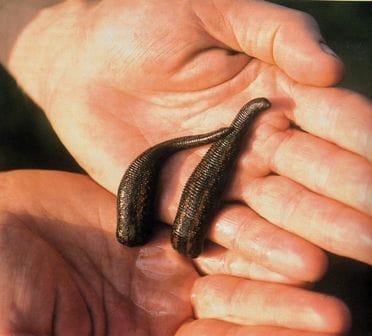Take two leeches and call me tomorrow
Nature has, once again, provided a solution to a crucial medical problem

Most of us believe that leeches belong to the category of the most disgusting and dangerous creatures of this world. They can, however be beneficial for people’s health.
Leeches – the word deriving from the old English word for physician, laece – are mainly used for treating abscesses, painful joints, glaucoma, myasthenia, and to heal venous diseases and thrombosis. They are also used in plastic surgery and can improve brain circulation. These medical applications of the leeches are the main topic of a recent paper published in the Journal of Postgraduate Medicine last week.
The team of scientists from Ohio State University Medical found that leeches have been fairly chosen as one of the best assistants to doctors, from antiquity until now. The authors say: “Modern leech therapy is based on sound scientific principles and has resulted in important patient care enhancements”.
Let’s look in more detail the behaviour of those creatures. They have two ways to suck your blood; either they use a proboscis to puncture your skin, or they use their three jaws and millions of little teeth to bite their way in. They live almost anywhere where there is water. Leeches find you by detecting skin oils, blood, heat, or even the carbon dioxide from your breath. Although about 600 leech species have been identified, only 15 are currently used in medicine.
But how do leeches know how much blood the patient should lose during the treatment? They take in a big amount of blood when they feed and for this reason they do not feed often. The European species can consume between 5 and 15 ml of blood in a single feeding (its American counterpart consumes ten times less) which is why the European leech is predominantly used. Usually, doctors use up to 10 leeches so the patient can lose up to 150 ml of blood during the treatment.
Another question that comes into mind when learning about leech therapy is whether the leech bite causes pain. Most patients say that it feels like 2 or 3 mosquito bites, so don’t worry too much; it is not painful! Leech saliva also contains a painkiller, which stops its victim from feeling the bite, and an anti-coagulant, which keeps the blood from clotting.
Douglas Chepeha, an ear, nose and throat surgeon at the University of Michigan, said that he treats two or three patients a year with leeches after rebuilding faces or mouths decimated by cancer.
This widespread use of leeches is the reason that, in Europe, millions of leeches are sold every year. Sometimes, leeches do a better job than other medical treatments in removing pooled blood and help the healing of skin grafts; something that is well tested over the centuries.
Many people are afraid of these creatures crawling on their body and of being bitten by them, but they have been used since ancient times, are well tested and nowadays are routinely used. The Food and Drug Administration (FDA) has even determined that leeches are medical devices because they meet the specifications, as defined by the Food Drug and Cosmetic Act.
Nature has, once again, provided a solution to a crucial medical problem.







